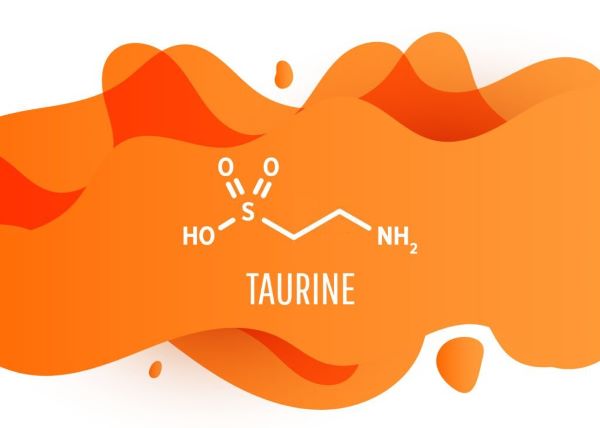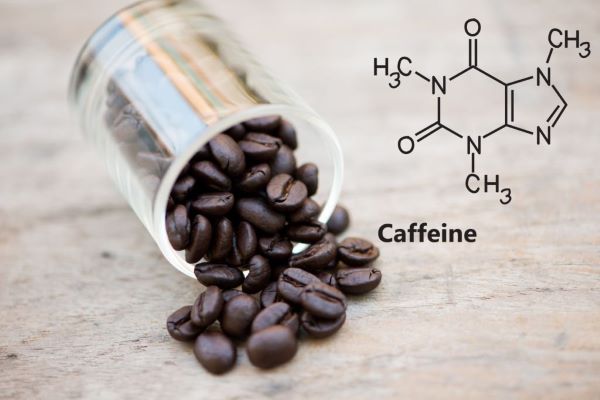In the modern world, the pursuit of energy seems relentless. With long working hours and the demands of a busy life, it’s no wonder people turn to energy-boosting supplements like Taurine and Caffeine. But when powering your day, which one should you choose between Taurine vs Caffeine?
Taurine, an amino acid known for its role in heart health, and Caffeine, the world’s most widely consumed psychoactive substance, are often hailed as two major players in energy boosters. However, the choice between these two is not always clear-cut.
In this blog, we aim to highlight these two popular stimulants, digging deeper into their mechanisms, comparing their effects, and helping you make an informed choice about which might serve as your better energy ally.
Join us as we delve into the world of Taurine vs Caffeine.
Science Behind Taurine and Caffeine
Now that we’ve compared the characteristics of taurine and caffeine, let’s delve deeper into the scientific aspects that make them effective energy boosters.
Do supplements like creatine have caffeine?
Taurine: The Calming Energizer
Taurine is an amino sulfonic acid but often referred to as an amino acid, a chemical that is a required building block of protein. Its unique structure allows it to play various bodily roles, including preventing congestive heart failure.
Taurine is found in large amounts in the brain, retina, heart, and blood cells called platelets.
When it comes to energy production, taurine’s key role is in the regulation of nerve cell activity and the preservation of cardiovascular health.
Its role in nerve regulation helps the body maintain a steady energy level, preventing energy crashes often associated with other stimulants.

Caffeine: The Instant Stimulator
Caffeine, a natural stimulant most commonly found in tea, coffee, and cacao plants, works by stimulating the brain and central nervous system, helping you to stay alert and preventing the onset of tiredness.
It does this by blocking the effects of adenosine, a neurotransmitter that relaxes the brain and makes you feel tired.
Caffeine’s energy-boosting effects are almost instant, making it an ideal choice for a quick pick-me-up.
However, because it affects the central nervous system, too much caffeine can lead to side effects like jitters, nervousness, and sleep disturbances.
In terms of exercise performance, caffeine has been shown to enhance various exercise performances and may reduce perceived exertion, allowing you to work out longer and harder.
Comparing Taurine vs Caffeine as Energy Boosters
Despite both being renowned for their energy-boosting effects, taurine and caffeine have pretty different mechanisms of action.
While taurine or caffeine might benefit older people or those with certain health conditions, these substances may not have the same positive effects for younger individuals. Regularly taking high doses might even lead to adverse side effects for adolescents.
Let’s dig deeper into their similarities and differences.
| Taurine | Caffeine | |
|---|---|---|
| Immediate Energy Boost | No | Yes |
| Sustained Energy Levels | Yes | No |
| Enhances Athletic Performance | Yes | Yes |
| Reduces Fatigue | Yes | Yes |
| Boosts Mental Focus | No | Yes |
| Possible Side Effects | Minimal | Jitters, insomnia, post-caffeine crash |
| Impact on Sleep | No negative effect | It can cause sleep disturbances if consumed late in the day |
| Metabolic Support | Yes | Limited |
The Immediate Rush: Caffeine’s Quick Fix
Caffeine is notorious for its immediate, noticeable effects on alertness and energy levels. It stimulates the central nervous system by blocking adenosine receptors, thus delaying the feeling of fatigue.
This effect can provide a significant performance boost in physical exercise and cognitive tasks.
However, it’s important to remember that caffeine’s stimulating effects can also lead to jitters, insomnia, and a post-caffeine crash once the effects wear off.
The Subtle Sustainer: Taurine’s Indirect Energy Boost
Taurine, on the other hand, doesn’t provide a quick energy boost. Instead, it supports various physiological processes indirectly contributing to maintaining energy levels.
For instance, it helps regulate nerve cell activity and muscle function, which is essential for energy production. Its potential to enhance athletic performance and improve energy metabolism can contribute to sustained energy levels throughout the day without the crash associated with caffeine.
Performance and Endurance: A Close Call
While caffeine can enhance physical and mental performance in the short term, taurine’s contribution to endurance performance and energy metabolism can be particularly beneficial for long-duration activities.
By reducing fatigue and muscle damage, taurine can help maintain performance over extended periods.
The Verdict
Ultimately, whether caffeine or taurine is the better energy booster depends on what you’re looking for.
Caffeine is likely your best bet if you need an immediate pick-me-up or boost in mental focus. On the other hand, if you’re seeking sustained energy levels, particularly for endurance activities or long days, taurine may be the better option.
Both, however, have unique health benefits like cognitive enhancement beyond energy boosting that should be considered in any comparison.
How to Choose Between Taurine vs Caffeine
Understanding the science behind taurine and caffeine is the first step, but how do you know which one is right for you? Let’s delve into some factors that can help guide your decision.
Your Lifestyle and Needs
First and foremost, consider your lifestyle and your specific needs. If you’re an athlete or engage in strenuous physical activity regularly, taurine might be the better option due to its muscle function enhancement and recovery benefits.
On the other hand, if you’re looking for an instant energy boost to help you power through a work presentation or a late-night study session, caffeine’s immediate stimulant effects may be more beneficial.

Sensitivity to Stimulants
Your sensitivity to stimulants also plays a significant role. Some individuals are more susceptible to the side effects of caffeine, including jitters, restlessness, and sleep disturbances.
If you’re among this group, taurine could be a better choice for its calming energy-boosting effects.
Long-Term Goals
Lastly, consider your long-term health and wellness goals. While caffeine can provide a quick energy burst, it doesn’t offer the same long-term health benefits as taurines, such as heart health support and nervous system regulation.
Consult a Healthcare Professional
As with any dietary supplement, it’s always best to consult a healthcare professional before starting a new supplement regimen. They can provide personalized advice based on your individual health needs and conditions.
Understanding Taurine: The Underestimated Powerhouse
Taurine is an amino sulfonic acid, often called an amino acid, a chemical that is a necessary building block of protein. Unlike caffeine, taurine isn’t a stimulant but still holds a special place in energy-boosting substances.
Taurine Sources and Common Uses
Taurine is naturally found in meat, fish, dairy products, and human breast milk. It’s also a common ingredient in energy drinks, usually alongside caffeine, giving the impression that taurine is a stimulant.
Furthermore, it’s available as a dietary supplement, often marketed towards improving athletic performance and boosting energy.
Effects of Taurine on the Body
Taurine has numerous health benefits. It’s essential for various physiological processes like maintaining hydration and electrolyte balance in cells, forming bile salts, and supporting the overall function of the central nervous system and eyes.
It also has antioxidant properties and can regulate immune system health and antioxidant function. Recent studies have found anti-aging properties of Taurine just like NMN.
When it comes to energy production, taurine contributes indirectly. It assists in regulating nerve cell activity, muscle function, and heart health, all of which are crucial for energy generation.
Taurine and Performance
Taurine’s effects on exercise performance are less well-known than caffeine’s. However, it may enhance athletic performance by reducing fatigue and muscle damage and improving fat burning during exercise.
Unlike caffeine, taurine is not a central nervous system stimulant, so it doesn’t provide a quick “energy boost.”
Still, its benefits for physical performance and energy metabolism may help maintain better overall energy levels throughout the day.
Understanding Caffeine: The World’s Most Popular Stimulant
Caffeine is a naturally occurring stimulant that works magic by blocking the action of a neurotransmitter called adenosine. Adenosine promotes sleep and relaxation, so when caffeine blocks it, it results in feelings of alertness and wakefulness.
Caffeine Sources and Common Uses
Caffeine can be found in over 60 plant species, including coffee beans, tea leaves, and cocoa nuts. It’s most commonly consumed in beverages like coffee, tea, and energy drinks. It’s also available in pill form as a supplement and can be found in certain medications.

Effects of Caffeine on the Body
Caffeine primarily stimulates the central nervous system, improving reaction time, wakefulness, concentration, and physical performance. It may also boost metabolism and fat burning, aiding weight loss.
However, caffeine is a double-edged sword. Excessive intake may lead to side effects like jitteriness, heart palpitations, and disrupted sleep.
Regular consumption can lead to tolerance, where the same amount of caffeine will have less effect over time, and withdrawal symptoms can occur if caffeine consumption is abruptly ceased.
Caffeine and Performance
Many studies have confirmed caffeine’s positive effects on mental and physical performance. Athletes often use it as an ergogenic aid, and it is widely recognized for its ability to enhance endurance and high-intensity exercise performance.
Conclusion
In the energy-boosting battle between taurine and caffeine, the victor ultimately depends on your unique needs, sensitivities, and goals.
While caffeine offers a fast-acting energy surge, taurine provides more of a marathon than a sprint, supporting overall health and bodily function.
Understanding the properties and effects of both is essential before making your choice.
Remember that balance and moderation are essential; consulting a healthcare professional can offer personalized guidance.
By understanding these powerful substances, you can make an informed decision that best supports your energy levels and overall well-being.
Check out more about supplement blogs.

I started my professional career as a sports medicine consultant in Rola, Missouri. My primary role was to suggest suitable supplements for my patients according to their pre-existing conditions and lifestyle goals. I believe a healthy lifestyle is the most important if you want to make your life really meaningfull.

